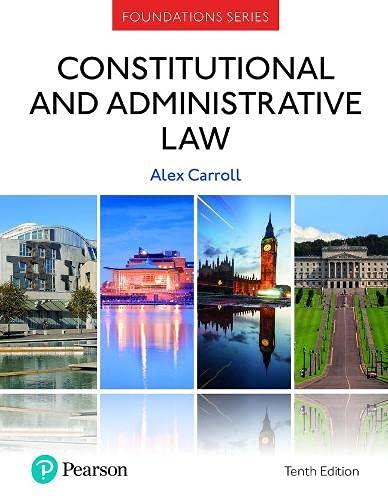Question
1. George owned a painting which he believed to be an original work by Sergeant, a famous English water-colourist. He sold the painting to Phillip,
1. George owned a painting which he believed to be an original work by Sergeant, a famous English water-colourist. He sold the painting to Phillip, who also believed it to be an original, for $25,000. When Phillip took the painting to an expert, one year later to see if the painting had appreciated, he discovered that the painting was not an original piece of Sergeant's work, but only a cheap reproduction. Phillip had purchased the painting for $25,000 because George had assured him that it was an original. Phillip decides to sue George. What arguments would you make on behalf of Phillip and what remedies would you expect to get if:
A. George knew the painting was not an original?
B. George honestly believed that the painting was an original?
- "As a general rule, a person who is not a party to a contract may neither sue upon, nor acquire rights under, that contract, even where it was made for his/her benefit." With reference to the above specific case law, discuss the above statement.
Step by Step Solution
There are 3 Steps involved in it
Step: 1

Get Instant Access to Expert-Tailored Solutions
See step-by-step solutions with expert insights and AI powered tools for academic success
Step: 2

Step: 3

Ace Your Homework with AI
Get the answers you need in no time with our AI-driven, step-by-step assistance
Get Started


